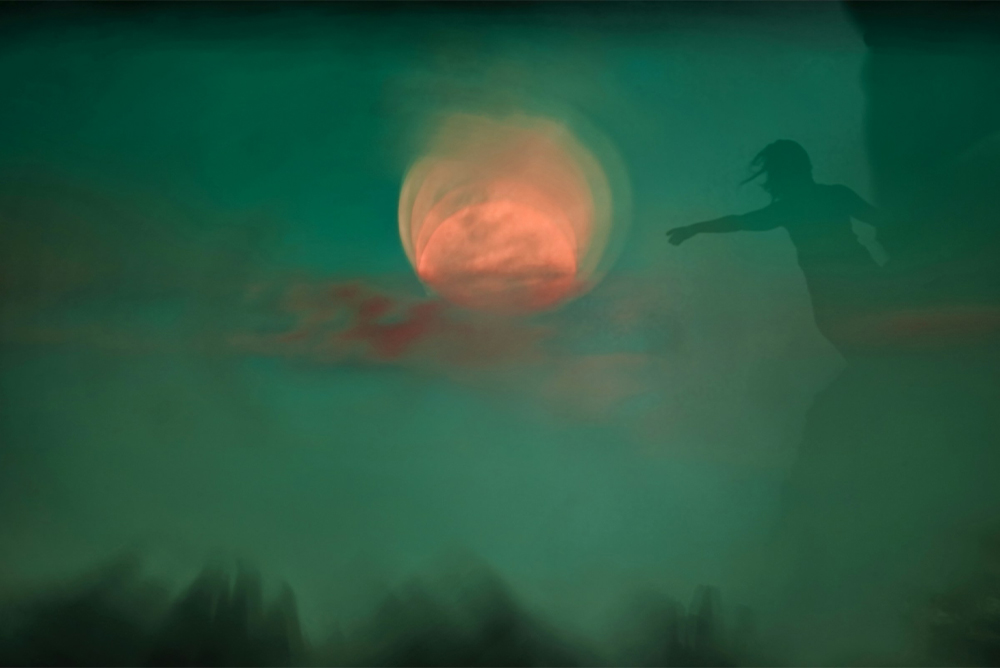I
What’s so good about the night
that sleeps inside the body
of someone who learns to love
with their fingers
when everyone else sleeps.
(Quiet! The sea is dreaming!)
You hid behind your silence,
far from yourself, away
from everything that brought us together,
like the time, as a child,
I untied my shoelaces
& the trees chanted
a farewell song
under a tempest of smiles.
Winter & summer will soon return.
Don’t cry.
Don’t be afraid.
Don’t laugh.
Because silence, too, is scared
of dying on an ordinary day
without remembering the lost kiss.
Don’t ask.
Don’t tell.
Don’t cry.
For there are thousands of ways to laugh
in a hospital without being noticed.
& what has become of the dream
that awoke one morning
inside your clasped hands?
II
These lines multiply my silence
they multiply my emptiness
multiply the space I live in
& your hands
upon my canvas of skin.
III
What happened to the woman who believed
in the blindness of years?
—she multiplied her days in a calendar of lore
& went back to her grandparents’ dreams.
Duplicación de tu imagen
I
Qué tiene de buena la noche
que duerme en el cuerpo
de alguien que aprende amar
con los dedos
cuando ya todos duermen.
(¡Silencio, el mar está soñando!)
Detrás de tu silencio te escondías
y lejos de ti misma,
lejos de todo aquello que siempre nos unió
como cuando niño
deshice el nudo de mis zapatos
y los árboles entonaron
la canción de adiós
bajo la tempestad de sonrisas.
Volverá el invierno y el verano también.
No llores
no temas
no rías
que también el silencio tiene miedo
de morir un día cualquiera
sin el recuerdo del beso perdido.
No preguntes
no respondas
no llores
que también hay mil maneras de reír
en un hospital sin que nadie lo sepa.
Y qué fue de aquel sueño
que una mañana
despertó en tus asidas manos.
II
Estas líneas multiplican mi silencio
multiplican mi nada
multiplican el espacio en que habito
y multiplican tus manos
en mi lienzo de piel.
III
¿Qué fue de la mujer que creyó
en la ceguera de los años?
—Multiplicó sus días en un calendario de lores
y volvió al sueño de sus abuelos.




